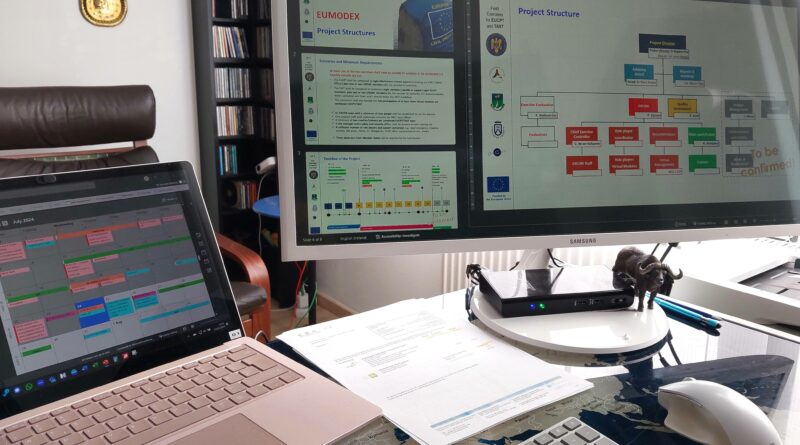Challenges in Multinational Project Management
Multinational project collaboration can bring some challenges like diverse perspectives, skills, experiences and resources and that may present obstacles. Here are the main challenges, I observed:
Project Management Methodologies
- Different Practices: Project staff members may use distinct project management frameworks (e.g., swim-lane approach) or contribute sometimes in a very creative way.
- Coordination of Tasks: Agreeing and harmonising these methodologies requires openness, extra effort and flexibility.
Cultural Differences
- Communication Styles: Variations in directness, formality, and the use of non-verbal cues can lead to misunderstandings.
- Decision-Making Processes: Some cultures prioritise consensus, while others rely very strongly on hierarchical decisions.
- Work Attitudes: Differences in work-life balance, punctuality, and approaches to deadlines can cause friction.
Trust and Relationship Building
- Building Trust: Establishing trust among team members from different backgrounds can take a long time and effort.
- Maintaining Relationships: Sustaining positive working relationships across distances and mentalities is a big challenge.
Language Barriers
- Miscommunication: Language proficiency varies, and pro-words are used differently leading to potential misinterpretations.
- Documentation and Reporting: Continuously ensuring that all documents are clear, comprehensible, and available to all team members can be challenging.
Conflict Resolution Methods
- Dispute and Problem Handling: Varied approaches to conflict resolution and addressing problems can hinder effective problem-solving.
Some Strategies to Overcome These Obstacles
Effective Project Management: Clear communication, frequent checking of relevant documents at file-sharing platforms and quick feedback can be very helpful to effective project work.
Regular and effective Communication: Establishing regular and clear communication channels (e. g. VTCs and meetings) is key to avoiding duplications to avoid duplications and ensuring stringent project management. It is also important to use the “CC” in emails to keep involved staff updated. Using the CC field effectively ensures that the right people are informed, communication remains clear and efficient, and email overload is minimized.
Cultural Awareness: frequently tries to enhance understanding and accept cultural differences.
Language: Begin the project with a clarification of meanings and definitions of important and frequently used terms.
Addressing these obstacles proactively is not easy, but an absolute need for more efficient and successful multinational project collaborations.
